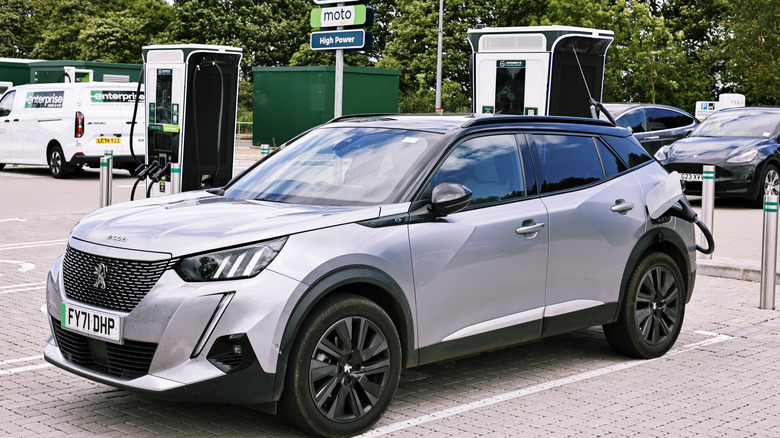
North Americans might be falling out of love with EVs, but Brits can't get enough of packing on the electron-powered miles. Drivers in the UK are traveling much more per year in EVs than their gas-powered counterparts, according to an analysis by the RAC Foundation. In 2024, BEVs less than three years old averaged 10,054 miles over the year, compared to just 7,585 in gas powertrains (or petrol, if you want to use the native English). That's 32.6% more miles driven with electrons than dead dinosaurs.
Er, not quite, since diesel continued its dominance with an average of 10,728 miles. But that's still only 6.7% more than what BEVs accomplished. If you're wondering, PHEVs come in at 9,367 miles.
Looking back through the numbers, BEVs have actually been beating out gas cars in the UK since 2016, growing from a thin edge to its current chasm. Gas engine mileage is nearly unchanged today from that time, so this is all being powered by growing EV distance driving. PHEVs, interestingly, have actually been declining steadily in annual mileage since 2020.
Read more: Every 2025 Formula 1 Livery, Ranked From Worst To Best
Fleets On The Streets

RAC's director, Steve Gooding, says this mostly has to do with big fleet customers rather than private drivers. Where diesel engines were once the obvious choice for long-haul or high-mileage vehicles, big British institutions are increasingly turning to batteries instead. "Given this shift in buying patterns... it might not be so surprising that our analysis shows battery-powered vehicles account for a disproportionately large number of miles in use," said Gooding.
A separate analysis by RAC showed that sales of BEVs started to outpace PHEVs in 2020, a gap that got to be yawning by 2024. Last year, Britons were driving 1.6 million of the former, or 82.1% more than the latter. Apparently, if your nation builds out a densely packed public charging infrastructure with government support and also offers subsidies, people and business will start actually buying full-electric cars. And what's more, they'll drive them a lot more than their gas counterparts, especially in this era of high fuel prices. Seems like something, I don't know, other countries -- not naming any names here -- might want to emulate.
Want more like this? Join the Jalopnik newsletter to get the latest auto news sent straight to your inbox...
Read the original article on Jalopnik.












